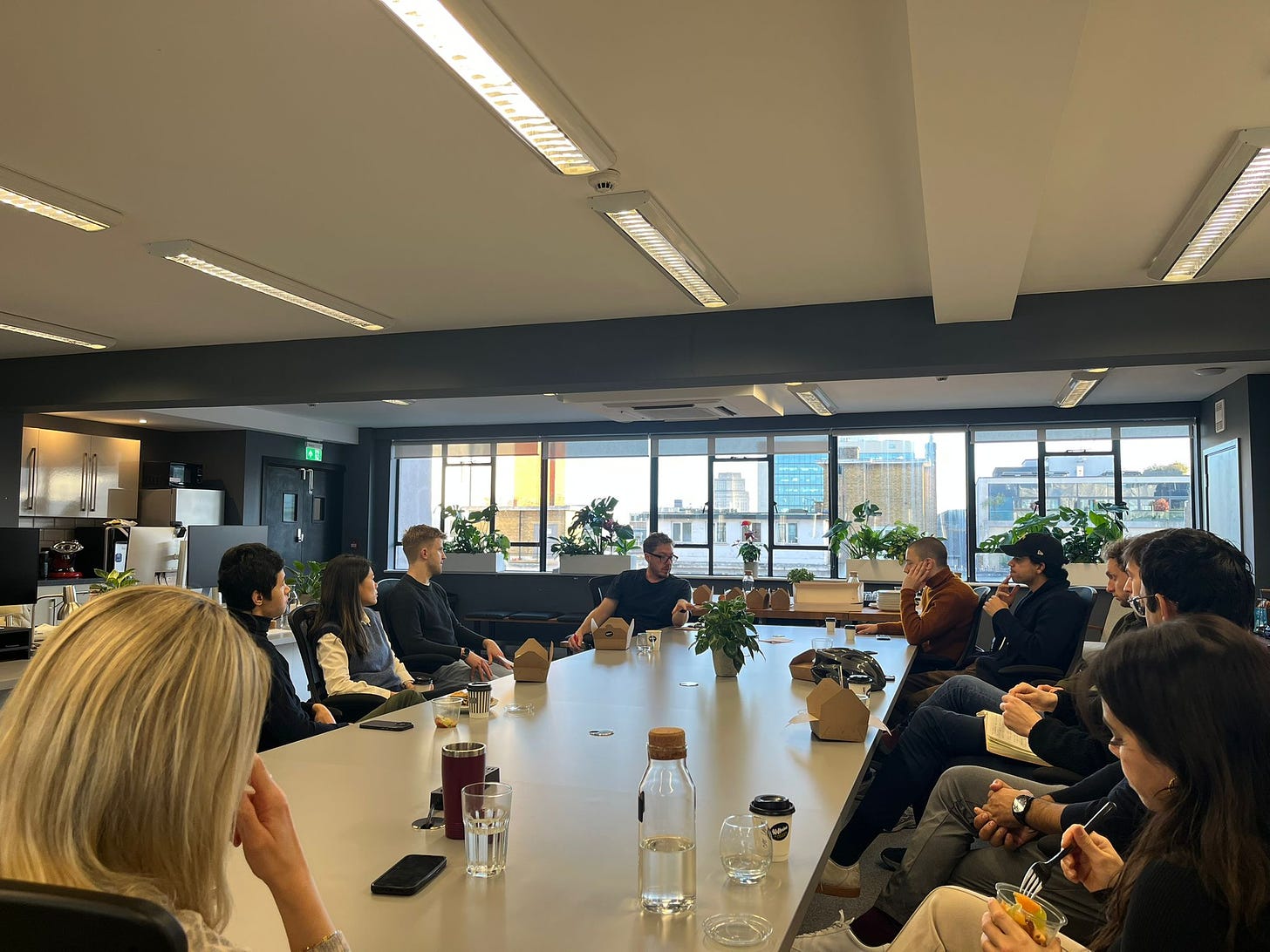AI Enterprise Sales Playbook: Luke Miller
Ex-Vercel VP Sales EMEA On Partnerships, Trust And Value Articulation
👋 Hey friends, I’m Akash! Software Synthesis is where I connect the dots on AI, software and company building strategy. You can reach me at akash@earlybird.com!
Last week we hosted Luke Miller for a founder breakfast in our office in London.
As the first sales hire at Vercel, Luke pioneered the enterprise sales motion, established the US Enterprise sales team, and later expanded Vercel’s presence across EMEA and APAC.
Below, we’re sharing some of the insights and takeaways that emerged from this wide-ranging discussion. Let us know if you’d be interested in joining the next one!
Listen to an audio version of this article:
The Trust Challenge in Modern Sales
Traditional trust-building channels in enterprise sales are being disrupted. Email outreach is becoming less effective due to AI-powered automation flooding these channels. This evolution forces sales teams to find new ways to establish credibility and build relationships.
The solution lies in building trust through multiple vectors: technical validation (certifications, security compliance), community leadership (particularly in open source), and enterprise-ready signals (SSO, 24/7 support).
Luke noted: "Trust is getting completely reformed. We don't know where it's all going to land."
Partnerships as a Sales Multiplier
Luke challenged the conventional view of partnerships as mere logo-sharing arrangements. Instead, he advocates for viewing partnerships as an extension of the sales function. "Partnerships would be from day zero. It's part of sales and it's part of scaling of sales strategy, not a partnership as in we've both got our logos on each other’s websites."
At Vercel, partnership evolution followed a clear progression:
Early collaboration with small, agile agencies
Product partnerships with complementary solutions
Engagement with global system integrators
Deep integration with cloud providers (AWS, GCP)
The key insight: successful partnerships aren't about brand alignment but about mutual value creation. "The simple proxy is revenue," Luke explained. "If you can help someone else's business sell more revenue... it is the simplest proxy to a partnership."
Enterprise Sales Motion Design
Luke emphasized the importance of sophisticated stakeholder management in enterprise sales.
Rather than relying solely on email threads, he advocates for creating private micro-websites for stakeholder education and maintaining clear project evaluation plans.
A crucial insight: technical champions often need support in navigating their organizations. "Engineers are fantastic at engineering. They're not sales guys," Luke noted. "They need to be supported and guided on how to navigate the organization."
Value Articulation and Pricing
One of the persistent challenges in technical product sales is articulating value. At Vercel, the team struggled to quantify the value of developer experience.
Their best successes came when speaking with heads of marketing about concrete metrics: "The best ROIs were when we were speaking to heads of marketing about their conversion rates or their page load times."
Miller advises having direct conversations about value early: "I'd be having that conversation in the first meeting... Why are we here? What do you want? In a nice way, what would be the outcome that you want here? What do you want to communicate back to your boss or stakeholders as the outcome for this whole conversation?"
For pricing strategy, Luke emphasizes the importance of aligning cost structure with customer value. This is particularly relevant in the AI era, where usage-based pricing can more directly correlate with customer value creation.
Product and Sales Integration
A key theme throughout the discussion was the importance of integrating product and sales strategies. Luke advocates for using sales as a learning mechanism: "Half of my job is ensuring I'm getting the most accurate market feedback to my team so they can evolve the product so my pipeline in six months is going to be functional."
This approach requires a careful balance. While it's important to gather market feedback, Luke warns against over-optimizing too early or trying to serve too many different use cases simultaneously. Focus and intentional experimentation are crucial.
The Future of Enterprise Sales
The discussion underscored a fundamental shift in enterprise sales methodology.
Success increasingly depends on:
Building authentic relationships in an AI-saturated world
Developing strategic partnerships that create mutual value
Supporting technical champions in organizational navigation
Clearly articulating value in customer terms
Maintaining tight integration between product and sales strategies
As Luke concluded, the key to success isn't following a rigid strategy but being the "fastest to respond to the market, listen better than anyone else and respond faster." This adaptive approach, combined with a focus on trust-building and value creation, forms the foundation of modern enterprise sales.
Thank you for reading. If you liked this piece, please share it with your friends, colleagues, and anyone that wants to get smarter on AI, startups and strategy. You can find me on LinkedIn or Twitter.





